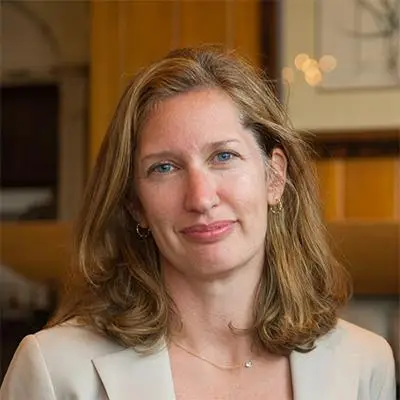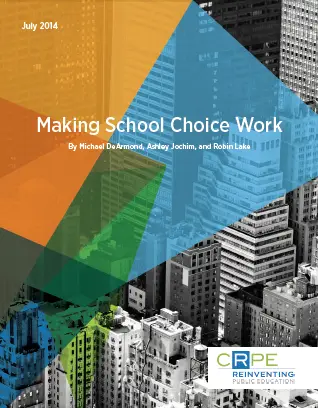School choice is increasingly the new normal in urban education. But in cities with multiple public school options, how can civic leaders create a choice system that works for all families, whether they choose a charter or district public school?
To answer this question, CRPE researchers surveyed 4,000 parents in eight cities (Baltimore, Cleveland, Denver, Detroit, Indianapolis, New Orleans, Philadelphia, and Washington, D.C.) with high degrees of school choice. The researchers also conducted interviews with government officials, choice advocates, and community leaders in four cities, and looked at how many different agencies oversee schools in 35 cities.
The study found that:
- In the eight cities surveyed, the majority of parents are actively choosing a school for their children.
- Parents face significant barriers to choosing schools, including inadequate information, transportation, and lack of quality options.
- Challenges facing families are not confined to the charter or district sector.
- Responsibility for schools often falls to multiple parties, including school districts, charter school authorizers, and state agencies, weakening accountability and making it difficult for leaders to address the challenges facing parents.
The report finds that a more transparent, accountable, and fair system will require action from all parties, including school districts, charter authorizers, charter operators, and states. State and city leaders may need to change laws to ensure that districts and charter authorizers oversee schools responsibly and that families do not face large barriers to choice. In some cases, formal governance changes may be necessary to address the challenges to making school choice work for all families.
In the Fall of 2014, CRPE will publish city-specific survey results that examine how investments in parent information, enrollment, transportation, and quality impact how parents experience school choice in American cities today.






